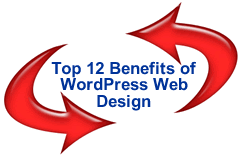Designing a professional website for your business should not be taken lightly because first impressions count. When visitors first see your website they only take a few seconds to decide whether to stay or leave. Your best solution is to hire a professional website designer because it’s what they do every day and have probably been building websites for many years. They will match the design with your business and build it in such a way that it will be search engine friendly.
But what if you want to design your own website?




